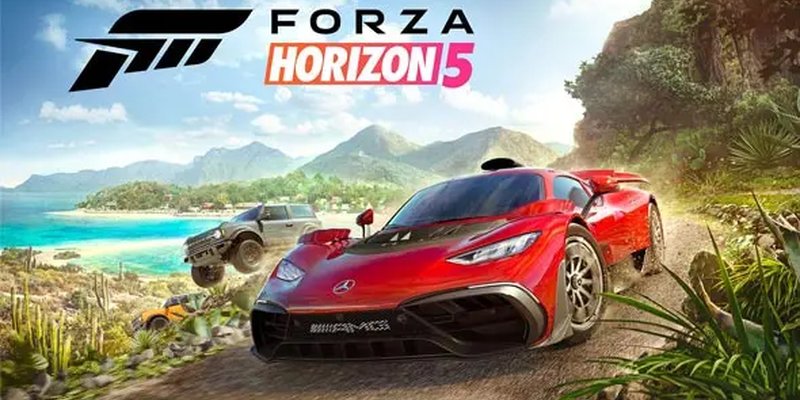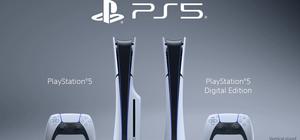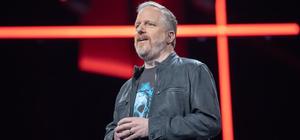In an industry built on rivalries and walled gardens, some truths feel absolute. Mario stays on Nintendo, Kratos stays on PlayStation, and Master Chief stays on Xbox. Or so we thought. If you needed any more proof that the old console war rulebook is being shredded, look no further than the 2025 sales charts. In a market-shattering development, Microsoft’s own Forza Horizon 5 didn't just launch on the PlayStation 5-it became the platform's best-selling new game of the year.
This wasn't a fluke or a rounding error. This was a strategic masterstroke years in the making. We’re here to break down how Microsoft parked its figurative Trojan Horse inside Sony’s fortress, and what it means for the future of the games we play.
An Unprecedented Victory Lap
Let's start with the raw, almost unbelievable data. According to mid-year reports from industry trackers like Alinea Analytics, the PS5 port of Forza Horizon 5 sold over 3 million copies in 2025. This figure placed it ahead of every other new title on the platform, including highly anticipated multiplatform games like Monster Hunter Wilds.
Crucially, this wasn't some lazy, half-baked port rushed out to test the waters. In a move dripping with corporate irony, Microsoft ensured the PS5 version was a premier technical showcase. Reviews from across the industry praised its performance, but the nail in the coffin was the "PS5 Pro Enhanced" edition. It was, by most accounts, the definitive way to experience the game, boasting superior fidelity and frame rates. Microsoft didn't just sell a game to its rival's audience; it delivered the best version of it, flexing its development prowess on their hardware.
The Trojan Horse Strategy
This success story didn't materialize out of thin air. It was the culmination of a deliberate, calculated pivot from Microsoft Gaming CEO Phil Spencer and the Xbox leadership team. The "Trojan Horse" strategy began in earnest back in 2024, when Microsoft began porting a curated selection of its smaller, critically acclaimed titles to competing consoles.
Games like Sea of Thieves, Pentiment, Grounded, and Hi-Fi Rush served as the canaries in the coal mine. When they launched on PlayStation and Nintendo Switch, they didn't just survive; they thrived, topping digital sales charts and proving a simple, powerful thesis: there is a massive, untapped audience for Xbox games on other platforms. This initial success gave Microsoft the confidence to unleash one of its crown jewels.
Filling a Niche on an Open Road
Why was Forza Horizon 5 the perfect candidate? Because it filled a glaring, multi-year-old hole in the PlayStation ecosystem. For decades, PlayStation’s racing identity has been defined by the Gran Turismo series-a franchise revered for its hardcore, meticulous simulation of motorsport. It’s a titan of the genre, but it caters to a specific, purist audience.
Forza Horizon, with its open-world freedom, arcade-style physics, and festival-like atmosphere, offers a fundamentally different experience. It’s the kind of high-octane, accessible fun that the PS5 library simply lacked a top-tier competitor for. Pent-up demand from PlayStation owners who had been watching from the sidelines for years created the perfect market conditions. Microsoft wasn’t just launching a game; it was servicing a demand that its competitor had left unmet.
The Future of Console Exclusivity is Written
The staggering success of Forza on PS5 has poured fuel on the already raging fire of the console exclusivity debate. For publishers, the financial argument is becoming undeniable. Locking a franchise with the universal appeal of Forza Horizon to a single console hardware is, to put it bluntly, leaving millions of dollars on the table.
While Sony has publicly reiterated its commitment to first-party exclusives as a core part of its strategy, the pressure is mounting. The most likely outcome for the industry at large is the normalization of a hybrid model. We can expect major titles to launch exclusively on their native hardware to drive initial console sales and define the platform's value. But after a window of 12, 18, or 24 months, a multiplatform release to maximize long-term revenue seems almost inevitable.
The console war isn't over, but the terms of engagement have fundamentally changed. It’s no longer about defending walled gardens at all costs. It's about deploying your best franchises to capture revenue wherever it exists-even deep within enemy territory. Forza Horizon 5's victory lap on the PS5 isn't just a sales story; it's a roadmap to the future of the industry.






